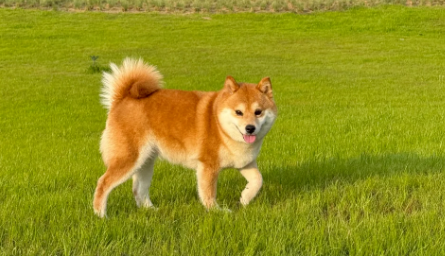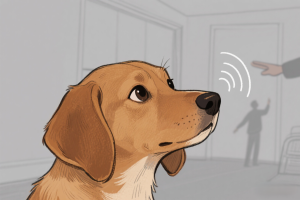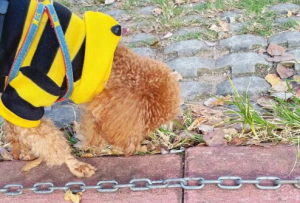When you take your dog out to play, you might often notice that it gets completely caught up in the fun—no matter how loudly you call, it ignores you, or sometimes even runs further away. In fact, forcibly calling your dog back in certain situations doesn’t just fail to work—it can hurt their feelings and even damage the trust between you and your furry friend!
-
When your dog is deeply sniffing: Don’t interrupt their “detective time”
A dog’s nose is their ultimate tool for exploring the world, and sniffing can be just as addictive for them as scrolling on a phone is for humans. Forcibly calling your dog back while it’simmersed in sniffing can make it feel like “My human is such a buzzkill” and even create resistance. It’s better to wait until your dog finishes sniffing—like when it lifts its head to lookaround—before calling it back. You can also train cues like “Go sniff” and “Time to go” in advance. Avoid yanking the leash or shouting, otherwise your dog may associate sniffing with being scolded.
-
When your dog is playing with other dogs: Forcible recall = social killer
Seeing your dog rolling around with friends and immediately calling it back to prevent rough play? This can make your dog think, “Making friends means losing freedom,” and it may become overly excitable around other dogs next time. Observe your dog’s play style: intervene only if teeth are bared or low growls occur. You can also use the “redirect attention” method—shake a toy or open a treat bag to distract your dog gently.
-
When your dog is marking territory: Interrupting can trigger anxiety
Male dogs lifting a leg to urinate isn’t just a physical need—it’s like posting a location update to their social circle. Forcibly pulling your dog away during marking can cause bladder issues or anxiety about urinating. As an owner, allow your dog to relieve itself before walks and train a “quick mark” command, like “Hurry up!” And never jerk the leash while it’s lifting its leg.

-
When your dog is enjoying alone time: Forcible interaction = emotional kidnapping
If your dog is quietly lounging and watching the scenery or chewing on a toy, resist the urge to constantly disturb it. Frequent interruptions can make your dog overly dependent on you or lose the ability to self-soothe. Think about it: do you always pet your dog while it’s resting? Do you chase it into corners when it wants space? Stop doing that—you must allow your dog the right to “not engage.”
-
When your dog is fleeing in fear: Chasing increases fear
When a dog is scared by thunder or fireworks and runs away, chasing and shouting “Come back!” only reinforces its fear. Your pursuit confirms “There really is danger.” Instead, squat down to reduce the sense of threat, clap your hands, or use crinkling snack wrappers to attract its attention, but avoid direct eye contact. If it doesn’t work, keep a safe distance and follow calmly, allowing your dog to calm itself.
So how can you make your dog happily come back?Three “Dos”: Make your dog feel like “Coming back = hitting the jackpot.” Your reward must be more appealing than whatever it’s doing at the moment. Train in stages, gradually increasing from low-distraction to high-distraction environments.Reward randomly: sometimes with treats, sometimes with toys, or even with freedom.Three “Don’ts”:Don’t end the fun immediately after a recall. Create a “come back → play → come back again” cycle.Don’t use recall for something your dog dislikes, like nail trimming or putting it in a crate.Don’t call your dog back when you’re angry—your frustration will make it choose to “pretend it didn’t hear you.”The best recall isn’t about control; it’s about making your dog feel that “coming back to you” is more fun than anything else in the world.





